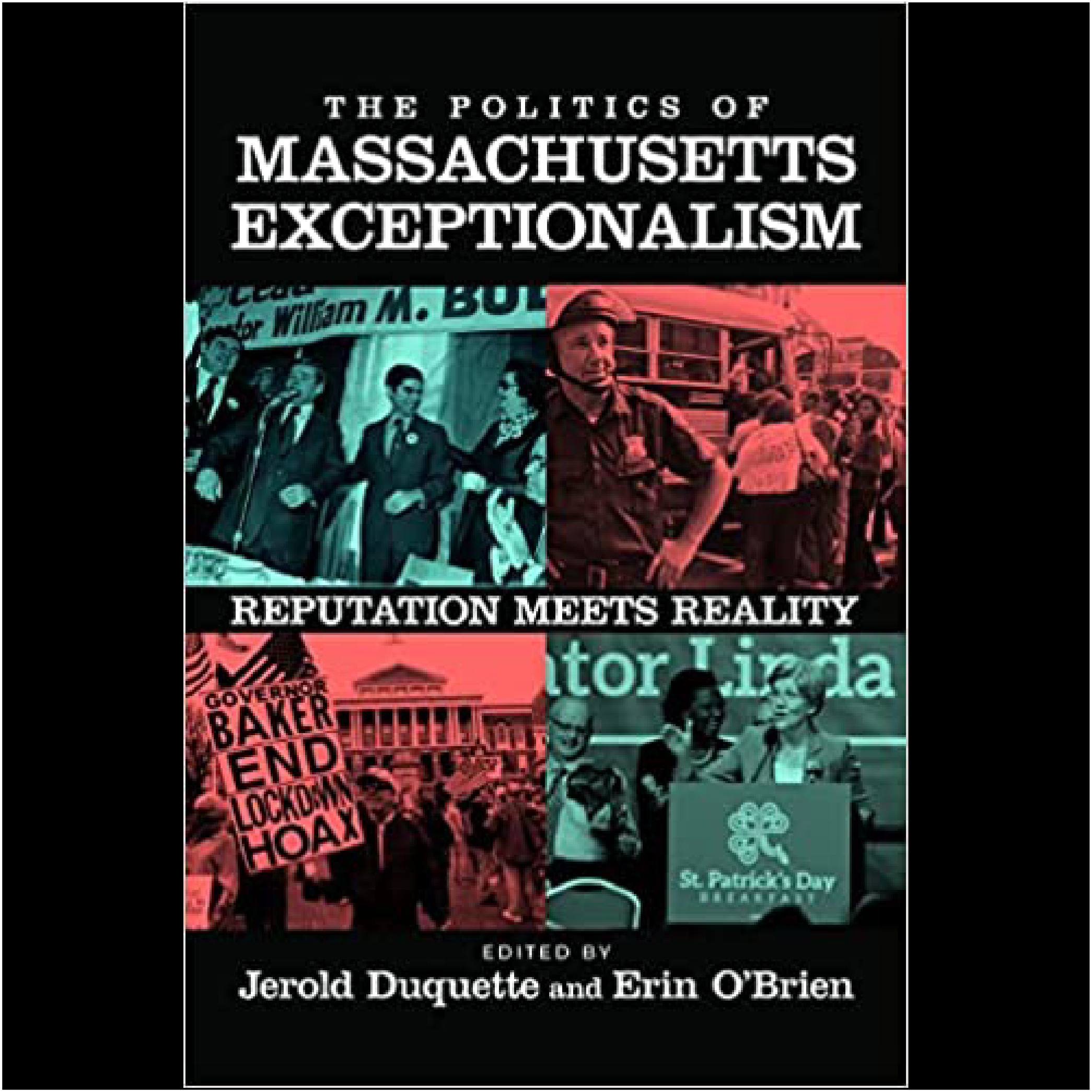The Politics of Massachusetts Exceptionalism

MHS Event
Erin O'Brien, University of Massachusetts, and Jerold Duquette, Central Connecticut State University
This is a hybrid event. The in-person reception starts at 5:30 and the program will began at 6:00. Register for how you plan to attend below.
Alternately described as a “city upon a hill” and “an organized system of hatreds,” Massachusetts politics has indisputably exerted an outsized pull on the national stage. The Commonwealth’s leaders often argue for the state’s distinct position within the union, citing its proud abolitionist history and its status as a policy leader on health care, gay marriage, and transgender rights, not to mention its fertile soil for budding national politicians. Detractors point to the state’s busing crisis, sky high levels of economic inequality, and mixed support for undocumented immigrants. The Politics of Massachusetts Exceptionalism tackles these tensions, offering a collection of essays from public policy experts that address the state’s noteworthy contributions to the nation’s political history.
Hybrid Event
The in-person reception starts at 5:30 and the program will begin at 6:00.
Masks are required inside the MHS building. Learn more about our COVID-19 protocols.
The virtual program begins at 6:00 PM and will be hosted on the video conference platform, Zoom. Registrants will receive a confirmation message with attendance information.
